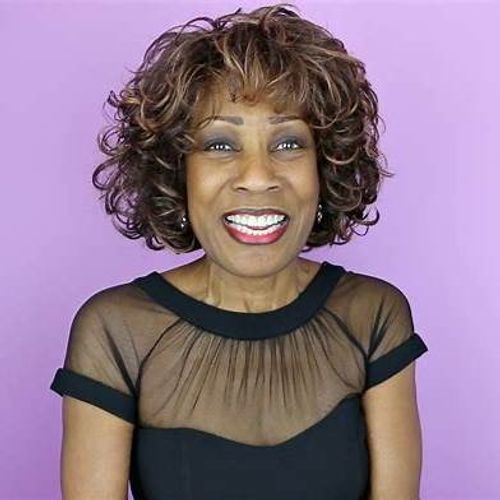Aunt Thelma's Unconventional Farewell: Choices, Dignity, and Humor
Aunt Thelma's story is a vibrant tapestry woven with style, grace, and a fiercely independent spirit. We dive into the colorful life of this remarkable woman from Goldsboro, North Carolina, who, despite the mysteries surrounding her romantic life, always dazzled with her impeccable fashion sense and love for costume jewelry. Thelma faced health challenges head-on, ultimately making the bold decision to forgo surgery for colon cancer, choosing instead to live her remaining days on her own terms. With an unwavering resolve and a sprinkle of humor, she even orchestrated her own farewell, leaving behind specific instructions for her funeral—because why should anyone else get to decide how you go out? Join us as we celebrate Thelma's legacy of dignity, community respect, and the profound impact of one woman's choices that continue to resonate with her family and friends.
…
Takeaways:
- Aunt Thelma was a fierce, independent woman who chose to live life on her own terms, refusing surgery despite a dire diagnosis.
- The episode highlights Aunt Thelma's vibrant personality and her flair for fashion, always appearing well put together, even on a budget.
- The bond between family members shines through as they navigate Aunt Thelma's final wishes and her refusal to accept conventional medical treatments.
- The playful interactions between Aunt Thelma and her family during visits reveal her strength and resilience, making light of serious situations.
- Aunt Thelma's legacy of style and independence serves as an inspiration, reminding us all to embrace our uniqueness and confidence.
- Through humor and heartfelt stories, the podcast episode illustrates the importance of respecting one's autonomy, especially in the face of life's challenges.
Companies mentioned in this episode:
- Bennett College
Transcript
My Aunt Thelma was my mother's older sister.
Speaker A:There were only two siblings in their family.
Speaker A:So there was my mother, Eva, and my Aunt Thelma.
Speaker A:They were about 10 years apart.
Speaker A:And one of the things that we never got any clear information about was Aunt Thelma's romantic status.
Speaker A:We would hear varying stories and conflicting stories about her being married at one time, not being married, how many times she was married.
Speaker A:Every now and then we'd hear talk of a boyfriend.
Speaker A:And we don't know if she ran the boyfriend off or if the boyfriend ran her off.
Speaker A:But my Aunt Thelma was a very colorful, clever, and creative woman who always looked like a mitt when she left the house.
Speaker A:Now, I don't mean a mint that you eat.
Speaker A:I mean that to mean she looked so well put together.
Speaker A:She everything matched, and her hair was always done just so.
Speaker A:And I remember all of her jewelry.
Speaker A:That was one of the things I used to love to do when I would go down to her house, where her house was actually.
Speaker A:Her house was actually my grandmother's and my grandfather's house as well, because that's where we knew Aunt Thelma to live.
Speaker A:Always was with her mother and father, my grandparents.
Speaker A:And so when we would visit them in the summertime, one of the best things I remember doing is going through her jewelry.
Speaker A:Oh, my goodness, she had tons and tons of real beautiful jewelry that I just thought she must have been a princess.
Speaker A:Now I look back and I realize it was all costume jewelry.
Speaker A:But we must remember that back in the day, in the 50s, 40s, 50s, 60s, the costume jewelry was quite wonderful.
Speaker A:And so my Aunt Thelma had all of this jewelry, and she wore it well, and she dressed well, and she knew how to pick quality clothes and on a very small budget.
Speaker A:She always made herself look amazing.
Speaker A:Now, my Aunt Thelma did sew.
Speaker A:All the women in my family sewed, and they taught me and my sister to sew.
Speaker A:And so she was always just well put together.
Speaker A:But it was a family theme.
Speaker A:It wasn't just a Thelma theme that whenever you represent, when you go out, you look good.
Speaker A:And I believe also ever since I can remember, I was born in the 50s, and I remember the 60s.
Speaker A:And I remember those being times when everybody in the community.
Speaker A:I grew up in the black community, so that's the community I'm speaking of, looked just really rich.
Speaker A:May not have had any money at all, but everybody just looked really rich and carried themselves really well.
Speaker A:The women's college in Greensboro, Bennett College.
Speaker A:I remember that the girls who attended the college would get in trouble if they were caught downtown without their gloves and without a hat.
Speaker A:And that's the way it was.
Speaker A:So my Aunt Thelma was of that school.
Speaker A:Well, when my Aunt thelma was about 80, my mother was in her late 70s, and I suppose Aunt Thelma was going to her late 80s.
Speaker A:Aunt Thelma was diagnosed with colon cancer, and she was told that being her age, she wasn't going to make it very long if she didn't have an operation.
Speaker A:And after the operation, she would have to live in this, what essentially would be a nursing home.
Speaker A:She would not be able to live alone on her own anymore.
Speaker A:And so when she told us this news, we just automatically assume, as I believe anybody would assume, okay, so let us know when the operation date is, and we'll definitely be round to pray and support you and help you and do whatever you need.
Speaker A:But she came back with us and she said, I'm not doing it.
Speaker A:She says, I'm not having the operation.
Speaker A:And we said, but they told you you need.
Speaker A:She says, well, I'm not going to do it.
Speaker A:If it's my time, it's my time.
Speaker A:I'm not going to do it.
Speaker A:I've seen too many friends who go into the hospital, have operations, and they go to a nursing home, and that's it.
Speaker A:They just never have their life back anymore.
Speaker A:So I'm just not going to do it.
Speaker A:And so my brothers and my sister and I were trying to decide if we should talk her into having this operation.
Speaker A:And then we decided, you know what?
Speaker A:She is an adult person.
Speaker A:She seems to be of sound mind right now.
Speaker A:So let her make the decision, and we'll just support whatever she decides to do.
Speaker A:Well, my Aunt Thelma decided she was not going to have the operation.
Speaker A:So they gave her, at the most, six months.
Speaker A:Okay, so six months came and went, and my Aunt Thelma was still going strong.
Speaker A:She was living in a small apartment.
Speaker A:She had moved out of the house where my grandparents were.
Speaker A:They had since passed on.
Speaker A:And she was living in a small apartment that was for seniors, but it was not assisted living.
Speaker A:It was just a community of older people.
Speaker A:But everybody was taking care of themselves.
Speaker A:And so she was taking care of herself.
Speaker A:She was cooking, cleaning, shopping, doing the laundry, the whole bit.
Speaker A:And so the six months passed, A year passed, two years passed, and my aunt is still going strong.
Speaker A:I believe about after the fourth year or so, me and my children, my two daughters, went to visit her in Goldsboro, where she was living.
Speaker A:And we were with her one afternoon, and she took us to visit a friend of hers who was a woman that always looked in on her.
Speaker A:And we were on this woman's porch when my Aunt Thelma just slipped away.
Speaker A:Now we thought she was dead, she wasn't dead, but we thought she was dead because she just slipped away.
Speaker A:And we were so scared.
Speaker A:And the woman we had come to visit was not even home.
Speaker A:So there we were on this porch of this person that wasn't there.
Speaker A:And all we knew to do was to call the paramedics.
Speaker A:We called 911 and the paramedics came.
Speaker A:And about the time that they came, the woman who lived there came, who knew them all very well.
Speaker A:And she said, and they all agreed, oh, she just fainted.
Speaker A:And the woman who looks on her all the time said, yeah, she does this from time to time.
Speaker A:What they're going to do is they're going to take her to the hospital and she just needs to get some new blood, they need to give her a little more blood, she'll get a transfusion.
Speaker A:And so we went with her to the hospital and when they saw my Aunt Thelma coming, they all knew her, it seems like she had been there so many times.
Speaker A:And they referred to her as their non compliant.
Speaker A:And they said, oh, here comes Sister Thelma, here's our non compliant, meaning that she would not do anything, of course, not doing the operation, wouldn't take any medication, was not taking any treatment.
Speaker A:She refused everything.
Speaker A:But she would go get some blood whenever she'd pass out.
Speaker A:And so what that meant is she would stay in the hospital overnight and they'd give her blood.
Speaker A:And then when she was strong enough, the next day she would leave.
Speaker A:And she did that many, many times, refusing all medication, all treatment, except when she passed out and she needed a blood transfusion.
Speaker A:She'd go to the hospital, they'd welcome their non compliant, she, she'd get her blood, the next day she'd go home and start her life all over again.
Speaker A:And I remember the night when my daughters and I were with her in the apartment and we had been with her through that hospital stay and it was a few days later now and we were getting ready to come back to New York and so we were.
Speaker A:My, my daughters were saying, oh, Thelma, I really like this.
Speaker A:Whatever it was, maybe it would have was a painting or something.
Speaker A:So, oh, I really like this.
Speaker A:She says, no, that's for later.
Speaker A:And then she'd say, but you can have those shoes now.
Speaker A:And so it became this thing where my children would ask about something and it became Almost a game.
Speaker A:I know this sounds really crazy of now or later, where my aunt would say, oh, you can take that with you now.
Speaker A:And if they wanted something or express a thought about something that she wasn't ready to give up, she said, no, you can have that later.
Speaker A:And she was always in her head, just very not afraid.
Speaker A:I mean, she knew she was going to die, but she already knew that she wanted to die on her terms, and she wasn't going to let anybody mess with her.
Speaker A:When she died, it was going to be because she decided to die.
Speaker A:That's what it felt like.
Speaker A:And so at her apartment, for instance, I mean, she still did her own grocery shopping and everything like that.
Speaker A:And she took us grocery shopping with the.
Speaker A:With her.
Speaker A:And, oh, she went into a drugstore, and she went right to the front of the line.
Speaker A:There was a line in the drugstore.
Speaker A:She picked up what she wanted, and she went right to the front of the line.
Speaker A:And we're thinking, sue, what are you doing?
Speaker A:We called her Aunt Su.
Speaker A:We called her Aunt Su because when my.
Speaker A:We were little, we couldn't.
Speaker A:My mother used to call her sister, and we couldn't say sister.
Speaker A:We would say S.
Speaker A:And so.
Speaker A:Oh, it's a long story, but we call her S.
Speaker A:We called her S up until the day she died.
Speaker A:So we said, sue, what are you doing?
Speaker A:There's a line.
Speaker A:And she just said, oh, I see, the line.
Speaker A:And she would just go get right in front of the line, and nobody would say anything to her, and we were embarrassed, so we'd like back out of the way.
Speaker A:It's like, you know, because I can't imagine her doing that in New York City, just skipping the whole line.
Speaker A:So she just went and got in front of the line.
Speaker A:But it seemed like everybody kind of knew her around there, and they knew that they honored her so that she wouldn't have to wait.
Speaker A:And so when they saw her coming, they just moved aside.
Speaker A:And my Aunt Thelma, she didn't even ask.
Speaker A:He would just go right to the front of the line.
Speaker A:And so she went up to the front of the line, and she's talking to this clerk who obviously knows her.
Speaker A:They're having a conversation, and she says to the clerk, at one point, she says, do you know how old I am?
Speaker A:And she says, yes, Thelma, I know how old you are.
Speaker A:She said, you told me how old you are when you weren't here last week.
Speaker A:She says, I'm 94.
Speaker A:She says, yes, Ms.
Speaker A:Thelma, I know.
Speaker A:We all know you're 94.
Speaker A:And that was my.
Speaker A:How my aunt lived.
Speaker A:And she had all these friends and people who just kind of respected her.
Speaker A:And I was so happy for her that the.
Speaker A:How the people treated her.
Speaker A:It was almost as if she was the queen of the town.
Speaker A:And we went later to.
Speaker A:For her, she wanted to get some vegetables from a roadside market or run of the like.
Speaker A:Yeah, roadside market.
Speaker A:There was this guy selling some vegetables over there.
Speaker A:So she went over there, and when she got over there, she said, now, this is my boyfriend.
Speaker A:She says, so what you going to do for me today?
Speaker A:What you going to give me?
Speaker A:How much you going to give me off these greens today?
Speaker A:And she was just like that.
Speaker A:And so the guy would.
Speaker A:They would have a little patter back together about him being her boyfriend.
Speaker A:And this guy, of course, was young enough to have been her son, but he just played it off, and everybody just seemed to enjoy.
Speaker A:And she put a smile on everybody's face where she would come around and people just put up with her madness.
Speaker A:And so when we got back home that day, I remember she was talking about having to do some laundry.
Speaker A:And so my children and I said, well, we'll go and do the laundry for you.
Speaker A:And she said, no, no, because you don't understand those machines.
Speaker A:She says, I know exactly which dryer you don't have to put a quarter in.
Speaker A:You just have to push something a certain way and it'll start.
Speaker A:And we said, okay.
Speaker A:And so she was just wonderful.
Speaker A:And then, of course, like I said, the night before, we played the Now a Later game.
Speaker A:And she was just always in good spirits.
Speaker A:And it wasn't until maybe.
Speaker A:I'm going to say it was at least a year after that where we got a call.
Speaker A:The woman who was checking in on her had called my brother.
Speaker A:Now, my brother used to visit her quite often.
Speaker A:He would drive from Greensboro to Goldsboro to visit her, look in on her and see what she needed and make sure that everything was okay.
Speaker A:And one of the things that she had told my brother was about the funeral that she intended to have.
Speaker A:So she gave my brother her insurance policies, and she gave them the list of who she didn't want to do the funeral, which would have been the new young preacher that had just come to her church.
Speaker A:She didn't.
Speaker A:She wasn't feeling that young preacher.
Speaker A:And so she had left notes and told my brother that he was not to preach the eulogy.
Speaker A:So she.
Speaker A:Because of that, she did not want to have the funeral at the church, that when she passed, she was going to have her funeral just at the funeral home.
Speaker A:Okay, so to make a very long story short, I know too late.
Speaker A:My aunt finally.
Speaker A:My brother finally ended up taking my aunt to a hospice and she passed over.
Speaker A:And the day before she passed, my brother was at the funeral home trying to get the arrangements started, when he was informed that her insurance policy, and I believe she had a couple of them, they had all expired.
Speaker A:In fact, one expired like a few had only expired a few days before she died.
Speaker A:But my brother never told her that the insurance had expired.
Speaker A:And my brother kept her wishes so out of his own pocket, he paid for everything to be the way that she said she wanted it to be.
Speaker A:Now, the thing was, though, there were so many people in the town who wanted to come to pay their last respects, who wanted to be at that.
Speaker A:That going home service for my Aunt Thelma, that they were not able.
Speaker A:The funeral home didn't hold that many people, so they moved it back to.
Speaker A:To the church where she for years had attended this church.
Speaker A:But like I said, she had a problem with this new preacher that was there.
Speaker A:And so it became my brother's task because he was trying to do everything the way she had said it, that he said, we're going to have to have the service here, but she doesn't want you to do the eulogy.
Speaker A:And you know what?
Speaker A:He.
Speaker A:That young preacher understood.
Speaker A:He knew my Aunt Thelma.
Speaker A:He knew.
Speaker A:He knew how stubborn she could be.
Speaker A:And he said, I want.
Speaker A:If that's what she wants, that's what I want to.
Speaker A:So he stepped aside and he let the old.
Speaker A:One of the old ministers come back and do the eulogy for her funeral.
Speaker A:And the funeral was very beautiful.
Speaker A:My brother, it seemed like he spared no expense.
Speaker A:He made sure she had on what she said she wanted to wear, that she had the kind of casket that she wanted, and that everything was just carried out to.
Speaker A:Just the way she had asked for it to be.
Speaker A:And so I look back on my Aunt Thelma's life and I admire that she lived and she died on her own terms.




